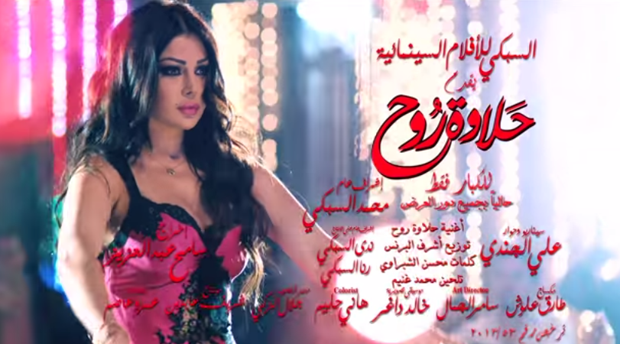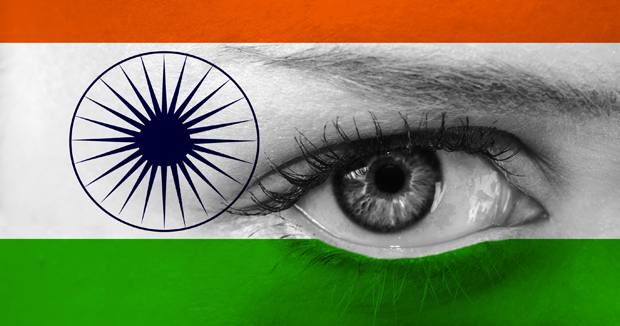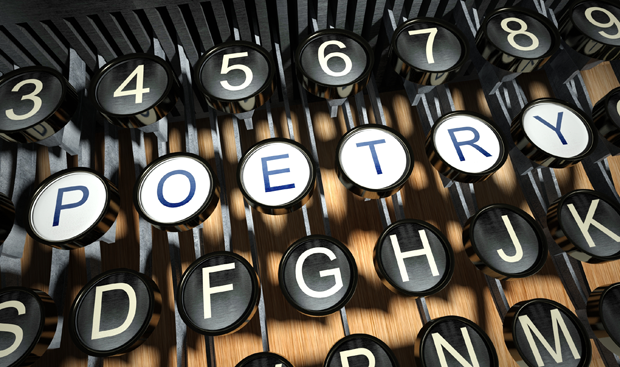13 May 2014 | News and features, Religion and Culture, Zimbabwe

Zimbabwe barred the South Africa band Freshlyground from entering the country.
Members of the South African band Freshlyground were denied entry to Zimbabwe just hours before they were set to play at the closing night of the Harare International Arts Festival (HIFA) last week. The county’s political leaders “have yet to find a sense of humour” the band said.
The group was turned away at Harare International Airport. They were told there was no official reason given or required for sending them back home.
The state-owned daily, The Herald, has subsequently quoted regional immigration officer Francis Mabika saying the band did not have valid work permits. However, organisers at HIFA confirmed in a statement that all the performers at this year’s festival, including Freshlyground, had made payment and received clearances from the National Arts Council, and had obtained temporary work permits.
It is believed the group’s 2010 song Chicken to Change, which accuses president Robert Mugabe of being too afraid to relinquish power, is the primary factor for Freshlyground being turned away even though the song is almost four years old. Days after it first hit airwaves, Freshlyground’s visas to perform at a concert at the Wild Geese Lodge in Harare were revoked. The Zimbabwean authorities do not seem to have changed their minds about the message in the music.
The catchy tune starts off praising Mugabe for being a “superhero” and “noble” in his early years but then takes a critical look at his rule. The accompanying video, which was made in collaboration with the satirical political cartoon show ZANEWS, features a caricature of Mugabe cruising the streets in a limousine, reading Bob’s Times and ignoring his surroundings, save for winding down his window when his car runs over a chicken to observe what appears to be poor people on the side of the road holding other chickens, and then rolling it back up.
Towards the end of the song, lead singer Zolani Mahola concludes with: “You promised always to open the doors for us. Indeed it is you and only you who sleeps with the key. You are chicken to change,” as Mugabe’s head transforms into a chicken’s in the back seat of the vehicle. The rooster is symbolic as it is on the logo of Mugabe’s party, ZANU-PF, which has ruled Zimbabwe for more than three decades but was also a way of depicting poverty in the country because poultry was used as a currency during hyperinflation.
In an interview with Public Radio International (PRI) Mahola explained the crisis in Zimbabwe during the mid-2000s inspired the band, which has one Zimbabwean member in flutist Simon Atwell, to write the song. “It’s been very obvious to see the degradation and how bad the situation is, and how fearful people had become, more and more, under the government of Mugabe. And so, we wrote the song,” Mahola said.
Their approach contrasts with the overall stance coming out of South Africa, especially from political figures, which has been to sidestep the Zimbabwean issue. Although South Africa is home to more than a million Zimbabweans who fled their homeland, the country’s politicians have refused to condemn Mugabe. Instead they have opted for quiet diplomacy, the term coined during Thabo Mbeki’s presidency, which essentially referred to ignoring the Zimbabwean problem.
The artistic corner has also been relatively silent on Zimbabwe apart from DJ Cleo, a kwaito performer, who was banned from performing in Bulawayo in 2006 after he questioned Mugabe’s economic management. Freshlyground, whose music is known for being uplifting and includes the 2010 World Cup anthem Waka Waka, are unlikely candidates to take up the cause but as their bass player, Josh Hawks, explained to PRI, they are willing to be advocates on occasion. “We’re musical-political as opposed to political-musical. But, we are affected by what goes on around us.”
Apart from a few tweets on their departure and a brief statement, the band have refused to comment further on the incident but assured supporters in Zimbabwe they remain committed to visiting the country again. Freshlyground had previously played in Zimbabwe at HIFA in 2004 and the National Arts Merit Awards in 2009 but have not been back since.
Their statement reads: “The band are hugely disappointed at the missed opportunity to return to one of their favourite performance venues, and is left saddened that once more Freshlyground were unable to connect with their fans in Harare. Freshlyground remain undeterred however, and hope that in the not too distant future will be allowed to celebrate a love of music and a freedom of expression with the people of Zimbabwe.”
HIFA’s director Manuel Bagorro called it a “sad day” for Zimbabweans and the festival organisers refunded tickets to the closing night, which were valued at £14 each. They also claim to have received an assurance from the government that the group would be allowed back into Zimbabwe in future.
Freshlyground was not the only source of controversy at this year’s HIFA. A play titled Lovers in Time caused a stir because the two spirit mediums from the 1800s switch sexes and race as they come back to modern Zimbabwe. The final showing of the play was delayed by half-an-hour and played out in with police present.
This article was posted on May 13, 2014 at indexoncensorship.org
23 Apr 2014 | Egypt, Middle East and North Africa, News and features

A shot from the trailer of Halawet Rooh (Image: Mohamed Elsobky/YouTube)
Just as Egyptian free expression advocates were celebrating the decision by Egypt’s State Censorship Board to allow the screening of Darren Aronofsky’s Biblical epic Noah, news of the withdrawal of Lebanese diva Haifa Wehbe’s new film Halawet Rooh (Beauty of the Soul) from theatres in Egypt put a damper on their cautiously optimistic mood. The fact that the decision to suspend the screening of the controversial film was made by interim Prime Minister Ibrahim Mehleb — rather than by the censors — has added fuel to the fire.
On Wednesday, the premier ordered the film to be removed from cinemas and sent back to the State Censorship Board for re-evaluation. The move led Ahmed Awad, the head of the State Censorship Board to tender his resignation, saying he was “not consulted” and categorically rejects government interference in his work.
Former Culture Minister Emad Abu Ghazy reminded the prime minister of a court ruling forbidding interference in the work of the independent censorship board. “The Premier has no right to suspend the screening of the film,” Abu Ghazy told AFP.
Popular TV talk show host Ibrahim Eissa meanwhile, cautioned that the ban does not auger well for freedom of expression.”Those who ban films today for damaging public morality will in future, ban films for political reasons,” he warned in an episode of his show “Hunna Al Kahera” broadcast on the privately owned CBC Channel.
Rights activists and groups have also expressed concern over the suspension of the film’s screening, saying the move is part of a wider clampdown on artistic expression in Egypt. In his column in Saturday’s edition of the independent newspaper Al-Shorouq, film critic Kamal Ramzy chided the government for not having learnt history’s lessons on censorship. “Instead of focusing on problems of corruption and the rule of law, the prime minister is instead, more occupied with censorship,” he lamented.
Mehleb meanwhile, downplayed the criticism levelled at him. At a meeting with intellectuals and literary figures on Saturday, he insisted that “there is a clear cut distinction between freedom of artistic expression and creativity on the one hand, and infringement on moral values on the other”.
The premier’s decision to suspend the screening of the film came in the wake of an outcry from conservatives in Egypt who denounced the film on social media networks as “obscene” and “a threat to public morality”. Oddly enough, some “liberal” Egyptians too, have joined the online campaigns accusing Ahmed El Sobky, the film’s producer of “destroying an entire generation” and being “more dangerous than bombs and missiles”. El Sobky’s trademark films are often “low quality” productions characterised by a mix of violence, belly dancing and sexually explicit scenes. His target audience are generally the uneducated, low income youth who traditionally celebrate public holidays by going to the cinema.
Film critics have also decried the film as “sexually provocative,” lambasting lead actress Haifa for “revealing too much flesh”. “There is hardly a scene in which Haifa does not appear half nude,” scoffed critic Ramy Abdel Razak in his review published Thursday in the independent daily Al Masry El Youm.
Critics question how a particularly steamy scene in which Haifa’s clothes are ripped off by a rapist, got past the State Censor board. Overlooking the fact that the film was rated “Adults Only” — which meant it was inaccessible to children under 16 — Egypt’s National Council for Childhood warned in a statement released last week, that the film was “harmful to minors” and “violates public morality”.
The “raunchy” film had been in cinemas for two weeks before it was removed and had reportedly grossed some £84,100 in its first week in theatres. At the time of publication, a two-minute trailer for the film on YouTube had over 3,6 million views.
Described by critics as a “poor imitation of Italian director Giuseppe Tornatore’s widely-acclaimed Malena”, the film tells the story of a young boy’s obsession with a beautiful nightclub singer. The woman, whose husband is abroad, is pursued by the men in her working class neighbourhood and her ardent young admirer subsequently takes it upon himself to protect her.
Fifteen year-old Karim El Abnoudi, who plays the role of the boy infatuated with Rooh, has reportedly been verbally harassed at his school and on the streets, with his classmates and some laymen — angered by what they had read or heard about the film — hurling insults at him and calling him “an infidel”.
The withdrawal of the film from theatres has fuelled fears among some secularists and rights organisations that increased censorship is stifling freedom of artistic expression and creativity in Egypt. In March, the State Censorship Board banned 20 music videos from Egyptian TV Channels for allegedly containing “explicit content”. In another sign that the interim government is putting the lid on artistic expression, a misdemeanour court in the Southern Egyptian province of Bani Suef in March upheld a verdict against Egyptian author and rights activist Karam Saber, who eight months earlier had been sentenced in absentia to five years in prison and LE1000 in bail for “blasphemy”. In June 2013. Saber was convicted on charges of “contempt of religion” and “inciting sedition” in a collection of short stories he wrote two years earlier titled Where is God? Both Al Azhar (the country’s highest Islamic authority ) and the Coptic Orthodox Church had earlier concurred in the opinion that the book was “blasphemous” and “ought to be banned”.
In a joint statement released in September (in the wake of the sentence handed down to Saber), 46 Arab Human Rights Organisations expressed concern for the diminishing space for free artistic expression and creativity. The Arab Network for Human Rights Information also said the verdict against Saber “belies any notion of respect for human rights by the state and violates provisions in the new constitution guaranteeing freedom of creativity and artistic expression”.
A provision in the new charter, endorsed by an overwhelming 98% of voters in a popular referendum in January, guarantees freedom of thought and opinion stipulating that any individual “has the right to express his opinion and to publicise it verbally or in writing or by other means”. Another provision in the 2014 constitution guarantees freedom of literary and artistic creation, stating that “the state shall promote art and literature, sponsor creators and protect their creations, providing the necessary means to achieve this”.
Many artists and writers had joined the mass protests in January 2011, hoping that the revolution would bring an end to decades of repression. For a short period after the fall of authoritarian president Hosni Mubarak, Egypt’s artists and literary figures capitalised on their new-found freedoms, tackling subjects long off limits to them — like sex and religion.The rise of Islamists to power in 2012 , however brought new limitations to the short-lived free flow of artistic and creative expression. New legislation was introduced by the Islamist-dominated parliament, banning art with obvious sexual references as well as concerts featuring female singers. The downfall of the Muslim Brotherhood regime in July 2013 rekindled hopes for an end to censorship and suppression of creativity. But in the new restrictive cultural atmosphere — reminiscent of the Mubarak era — these hopes have been quickly dashed, giving way to disappointment, frustration and fear.
“It is ironic that the ban on Wehbe’s film would come from the interim government that replaced the ousted Islamist regime,” prominent blogger Zeinobia wrote last week. Many of the liberal Egyptians who joined the uprising against the Muslim Brotherhood president in July last year had said they were protesting against “religious fascism” and had hoped the new government would be secular and more democratic.
“The interim government has demonstrated that it is more Islamic than the Islamists,” lamented Sameh Kassem, culture editor at the independent Al Bawabh news website .
“The withdrawal of Wehbe’s film from theatres and the verdict against Saber are attempts by the interim government to appease the ultra-orthodox Salafis ahead of presidential elections scheduled on 28 and 29 May,” he told Index.
Egypt’s Salafis, the ultra-conservative Islamist movement that had initially backed ousted Muslim Brotherhood President Mohamed Morsi, later decided to side with the military and lent its support to the military-backed interim government after his deposition.
“The military-backed authorities are trying to woo the Salafis to guarantee their votes for former military chief Abdel Fattah El Sisi in the upcoming elections,” Kassem said.
This article was originally posted on 22 April 2014 at indexoncensorship.org
16 Apr 2014 | India, News and features, Politics and Society

(Image: GeorgeMPhotography/Shutterstock)
The Hindu Janajagruti Samiti’s (HJS) unmistakable glee knew no bounds. It had scored a hat trick of getting Ali J, a play centred around the partition of India and communal riots, and seeking to demolish every argument advanced by Hindu fundamentalists, off the stage.
First it was Mumbai, when on 6 February the organisers of the prestigious Kala Ghoda Festival, fearing violence from HJS and political party Shiv Sena, were cowed into calling it off. On March 9, the Chennai Police, citing “law and order problems” asked the troupe to cancel the show. And on 12 March, an hour before the play was about to start, Bangalore cops barged into the theatre and told the performers to clear off from the premises.
The memorandum submitted by the HJS, a revanchist organisation dedicated to “rekindling righteousness” and reawakening (Janajagruti means “mass awakening” in Sanskrit) Indians’ pride in their ancient culture, reads like a study in jingoism laced with vicious communalism. Evam, the Chennai-based theatre group producing the play, is accused of hurting religious sentiments and assaulting nationalistic pride because, among other things it shows an inter-faith love affair, depicts the persecution of Muslims, advocates jihad, depicts Jinnah as being a taller personality than Gandhi, and overall militates “against the established moral principles of Indian society”. These bellicose claims must be greeted with incredulity because as Karthik Kumar, the director and lead actor asserts in an interview to a national daily, none of these purveyors of “Indian morality” had even watched the play. Moreover, as Kumar categorically says, the crux of Ali J’s message was to recall the horrors of partition and caution against the purveyors of hate who indulge in polarising people on the grounds of religion.
This spate of censorious incidents leads one to a number of questions. What is the provenance of organisations like the HJS and the Shiv Sena? What motivates them to claim a sole monopoly on the interpretation of history? And, does the state bear no responsibility in thwarting their efforts?
The systematic rewriting of history and imposing myths upon established facts is a critical component of the Hindu nationalist ideology, for, the doctrine of Hindutva mandates not an India of cultural and ethnic syncretism, but a “Hindustan” in which rabid Islamophobia runs riot. It isn’t the first time that the depiction of partition — the goriest and most viciously communal episode in South Asian history — has been attacked by Hindu supremacists.
In April 1974, M.S. Sathyu’s film Garam Hawa (Hot Wind) — the heartrending tale of the “scorching, simmering and debilitating winds of communalism, political bigotry and intolerance” incurred the Shiv Sena’s wrath. Salim Mirza, the protagonist, was a study in resilience and religious tolerance. Even when everything around him is charred in the communal inferno, he refused to leave India. Bal Thackeray, the Shiv Sena supremo, was so enraged at this humanistic portrayal of a Muslim that he threatened to raze to ashes every single theatre and screen which showed the film. The premiere at Bombay’s Regal Cinema was stalled because the police played mute bystanders. Only after a special screening was hastily arranged for Thackeray and he was satisfied that a Muslim had to stay back and join the Indian (read “Hindu”) mainstream was the film allowed to go on.
Tamas, a television serial carrying pretty much the same message as Garam Hawa, encountered similar opposition in 1988. It didn’t help that the government of Maharashtra, citing possible law and order problems, effectively played tango with the champions of censorship. It could go on air only after the Supreme Court rejected the government’s apprehensions as unfounded.
It would indeed be short-sighted to reserve trenchant criticism only for the bullies who squelch freedom of expression, for more often than not, the government is equally complicit. This is because India’s constitution is unequivocal — that restrictions on speech can be imposed only if “public order” and not the “law and order situation” is in jeopardy. Last year, the Tamil Nadu government took this specious and patently illegal plea while stalling Vishwaroopam, a film which some Muslim organisations found offensive. The courts have clearly stated that “law and order” was narrower in scope than “public order”, and these two should not be interpreted interchangeably, and it is incumbent upon the state to protect the fundamental right to speech in the face of onslaughts.
As long as the government pussyfoots or plays a charade for purposes of political expediency, the HJS and others of its ilk will be thirsting for more glory.
This article was published on April 16, 2014 at indexoncensorship.org
17 Mar 2014 | News and features, Religion and Culture, Young Writers / Artists Programme

A few weeks ago, 13,000 writers swarmed Seattle for the annual Association of Writers and Writing Programs conference. In the seaport city known for its ideal reading (and writing) weather — and home to poet Maged Zaher — writers filled hotel rooms and bars. On official panels they debated the state of contemporary literature, and at offsite readings and parties, they celebrated the written word.
The song of the nightingale / Is not up for sale
Ziba Karbassi, Gravequake
On the other side of the hemisphere, Ziba Karbassi doesn’t need to attend a conference to know what contemporary literature looks like. Born in 1974 in Tabriz, Iran, this rising star of Persian poetry, who also writes in her first language of Azeri Turkish, has been living in exile in London since leaving her country in 1989. Karbassi has published eight books of poetry in Persian, and with Stephen Watts, she has translated much of her work into English.
Taken from an incident close to the author’s family in the 1980s, her poem “Death by Stoning” depicts a young pregnant woman taken to prison, tortured, and stoned to death:
I am not a scaffold to be toppled
not a felled tree to be sunk in the flood
I am only a bag of bones and skin
smashed about
The heavy consonants in the nouns and adjectives and the scattered form of the poem demonstrate the mother-to-be’s “anguished, loving, and crazed” state of mind. “Death by Stoning” shows how poetry can give us a view into worlds distant from — but not entirely unlike — our own. Poetry can also play a part in shaping our world.
After the US invasion of Iraq by the Bush administration in 2003, over 13,000 poets rallied in the global movement Poets Against the War. During Occupy Wall Street in the autumn of 2011, poets from around the world contributed to the People’s Library in Zuccotti Park to form a living, breathing, inclusive anthology of the moment. At Occupy Oakland’s Port Shutdown on 2 November, 2011, there was a strong poets’ contingent, and when protestors in Cairo marched on Tahrir Square in solidarity with Occupy Oakland, the meme “Don’t Afraid” from one protestor’s sign quickly became a poetic rallying cry for Oaklanders.
But for artists as for whistleblowers — especially those working against repression, colonialism, and the destruction of the environment by big business — exercising free speech, online or off, can still lead to worst-case scenarios of exile, as in Karbassi’s case, and execution, as friends, relatives, and fans of Arab-Iranian poet Hashem Shaabani can attest to.
What! Graveyard? Fear? Are you kidding? You’re kidding, right?
Gravequake
Karbassi, however, is not afraid of expressing herself, and poets continue to organise, as manifested at the Revolution and/or Poetry conference in the San Francisco Bay Area in October 2013.
Our poetry is not exactly our politics, and our politics are not necessarily our poetry, but the line between them is blurry and easily crossed. Poetry remains a relatively free space: there are plenty of freely accessible journals on the internet; house and salon-style readings are growing in and around urban centres; anyone could submit to the Occupy Wall Street anthology, and all submitted poems were accepted. The art form remains a hopeful space for full participation in cultural and everyday life, whether we gather at conferences or in the streets — or both.
This article was posted on March 17, 2014 at indexoncensorship.org




